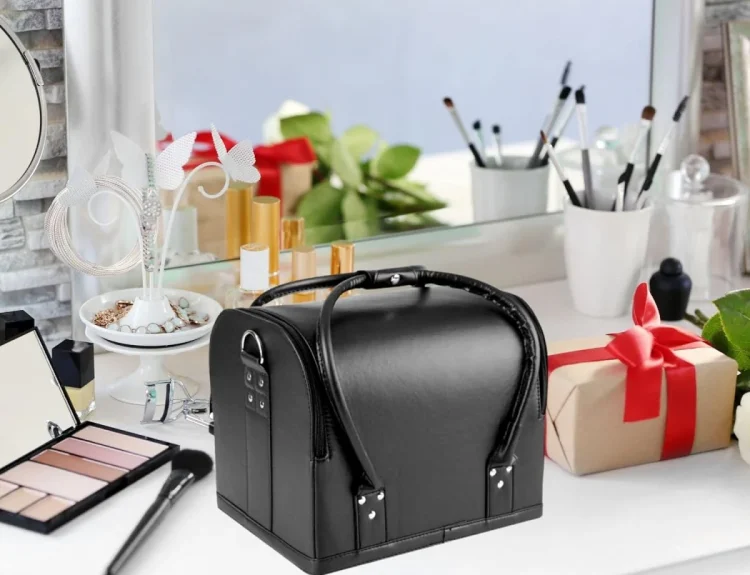In the modern retail world, the term boutique represents much more than a small shop. It symbolizes exclusivity, craftsmanship, and curated experiences that appeal to discerning consumers seeking individuality over mass-produced goods. The boutique model has revolutionized how people shop, merging artistry with commerce to create meaningful customer relationships and lasting brand loyalty. Understanding what makes a boutique stand out requires examining its philosophy, operations, customer experience, and evolving relevance in a digital economy.
What Defines a Boutique?
A boutique is a specialized retail store that offers carefully selected, high-quality products often centered around a particular theme or niche. Unlike large department stores or chain retailers, boutiques focus on curation and personalization, offering products that reflect distinct aesthetic values or cultural influences. This can include fashion, jewelry, home décor, skincare, fragrances, or even artisanal foods.
What sets a boutique apart is not just its product line but the experience it provides. Every detail—from the store’s layout and design to the customer service and packaging—is crafted to create an emotional connection. Boutiques often emphasize storytelling, authenticity, and the artistry behind their offerings.
Key Characteristics of a Boutique
- Limited Inventory: Boutiques typically carry smaller quantities of each item, enhancing exclusivity and reducing overstock.
- Curated Selection: Products are handpicked by owners or designers based on a cohesive aesthetic or brand philosophy.
- Personalized Service: Staff often build personal relationships with customers, offering styling advice, custom orders, or private consultations.
- Unique Design and Ambiance: Interiors are thoughtfully designed to reflect the brand’s personality, using textures, lighting, and music to create a mood.
- Community Focus: Many boutiques engage with local artisans and host events that foster connections with their communities.
The Evolution of the Boutique Concept
Historically, boutiques emerged as independent artisan shops in European cities during the 19th and early 20th centuries. Parisian ateliers and New York fashion houses popularized the boutique culture, where designers showcased limited collections to elite clientele. Over time, the concept expanded globally, evolving into a sophisticated retail format synonymous with exclusivity and style.
In the 21st century, the boutique model transcends physical spaces. Online boutiques have flourished, blending e-commerce convenience with the intimacy of a personalized shopping experience. Social media, influencer marketing, and digital storytelling have allowed boutique brands to reach global audiences without losing their small-scale authenticity.
The Psychology Behind Boutique Shopping
Consumers today are not merely buying products; they are seeking identity and self-expression through their purchases. Boutiques fulfill this psychological need by offering items that feel personal and rare. The scarcity and individuality of boutique products make them emotionally rewarding.
Boutique shopping also aligns with the growing anti-fast-fashion sentiment. Shoppers are becoming more conscious of sustainability, craftsmanship, and ethical production. They value transparency and prefer buying from brands that align with their values. This emotional and ethical connection strengthens customer loyalty and enhances word-of-mouth marketing, which is vital for small-scale businesses.
Emotional Drivers Behind Boutique Purchases
- Exclusivity: Owning something rare or custom-made boosts a sense of individuality.
- Trust: Boutiques often prioritize authenticity and quality, which fosters long-term trust.
- Experience: Personalized attention and tailored recommendations create lasting impressions.
- Values Alignment: Customers increasingly seek brands that reflect their ethical or cultural beliefs.
Boutique Business Models: How They Operate
The success of a boutique lies in balancing creativity with commercial acumen. A strong identity, cohesive brand story, and consistent customer engagement are essential.
1. Product Curation and Design
Boutique owners typically invest significant effort in sourcing or designing unique products. Whether handcrafted jewelry or bespoke clothing, each item must align with the store’s overall aesthetic and appeal to its target demographic. Many boutiques also collaborate with independent designers or local artisans to ensure originality.
2. Pricing Strategy
Boutique pricing reflects not only material value but also craftsmanship, exclusivity, and experience. Consumers expect higher prices when they perceive superior quality and authenticity. Transparent pricing strategies that communicate the story behind each product foster trust and justify premium positioning.
3. Location and Atmosphere
The physical setting of a boutique contributes to its identity. Prime urban districts, art hubs, or historic neighborhoods often host these stores. Interior design is equally important, using minimalist displays, warm lighting, and personalized décor to invite exploration.
4. Brand Storytelling
Every successful boutique has a story that resonates with its audience. Whether inspired by a founder’s passion, a cultural heritage, or a design philosophy, storytelling differentiates a boutique from competitors and establishes emotional connections.
5. Digital Integration
Modern boutiques leverage technology to extend their reach. A well-designed website, online store, and strong social media presence are crucial for visibility. However, the digital experience must retain the boutique’s personalized touch, emphasizing intimate engagement and authenticity rather than generic marketing.
The Role of Boutique Culture in Modern Retail
Boutiques are redefining retail by rejecting the uniformity of mass-market models. They stand at the intersection of artistry and entrepreneurship, reflecting the growing demand for meaningful consumer experiences.
Sustainability and Ethical Consumption
Consumers are increasingly aware of environmental issues, and boutiques play a pivotal role in promoting slow fashion and sustainable living. By producing limited runs, supporting local craftsmanship, and sourcing eco-friendly materials, boutiques offer ethical alternatives to fast retail chains.
Local Economic Impact
Boutiques strengthen local economies by collaborating with nearby artisans, designers, and small-scale suppliers. They often become cultural landmarks within communities, fostering creativity and diversity in commerce.
The Boutique Hospitality Approach
Boutiques are not limited to retail; the philosophy extends to boutique hotels, fitness studios, and spas, where the same principles of exclusivity and personalization apply. Boutique hotels, for instance, offer distinctive architecture, custom interiors, and individualized services that distinguish them from chain accommodations.
The Future of Boutiques in a Digital Economy
While e-commerce continues to dominate retail, the boutique model remains resilient because it thrives on experience and emotion, not just convenience. However, to stay competitive, boutiques must adapt strategically.
Innovations Shaping the Boutique Industry
- Virtual Fitting Rooms: Offering personalized style consultations via augmented reality.
- Omnichannel Integration: Merging in-store and online shopping seamlessly.
- Social Commerce: Using platforms like Instagram and TikTok to sell directly through storytelling.
- AI-Powered Personalization: Leveraging data to curate product recommendations that mirror boutique-level personalization online.
Hybrid Retail Experience
The most successful boutiques now combine physical and digital experiences, creating hybrid spaces where customers can interact with the brand both online and offline. For example, a shopper might discover a boutique through Instagram, explore its virtual showroom, and later visit the store for an in-person fitting.
Challenges and Opportunities
Boutiques face challenges such as high operational costs, limited scalability, and intense digital competition. However, their strength lies in authenticity, adaptability, and customer loyalty. By focusing on quality over quantity, boutiques can thrive even in volatile markets.
FAQs
What makes a boutique different from a regular retail store?
A boutique focuses on curated, limited-edition, and high-quality items with personalized service, unlike large retail stores that prioritize volume and variety.
Are boutique products more expensive than regular retail items?
Generally, yes. Boutique pricing reflects craftsmanship, exclusivity, and premium materials rather than mass production.
Can a boutique operate solely online?
Absolutely. Many successful boutiques function entirely online, using social media and storytelling to replicate the personalized experience of in-person shopping.
How do boutiques build customer loyalty?
By offering consistent quality, transparent values, personalized interactions, and community engagement, boutiques establish deep emotional connections that foster repeat business.
What are the emerging trends in the boutique industry?
Digital personalization, sustainable production, limited-edition collections, and immersive shopping experiences are among the top trends driving the boutique market forward.
Why are boutiques important for local communities?
They support local craftsmanship, create employment, encourage ethical consumption, and enhance the cultural fabric of their neighborhoods.
Boutiques continue to redefine luxury and individuality, offering not just products but personalized stories and experiences that resonate deeply with modern consumers. In a world where authenticity is the ultimate currency, boutiques remain timeless symbols of creativity, passion, and refined taste.







